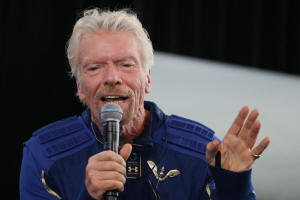|
The company, founded by billionaire Richard Branson, had suspended
flights of the spaceplane VSS Unity and its carrier plane in 2021 to
make various spacecraft enhancements, delaying the company's debut
customer mission to the edge of space.
"Our near-term objective for commercial spaceline operations is to
safely deliver recurring flights with our current ships while
providing an unrivaled experience for private astronauts and
researchers," Virgin Galactic Chief Executive Michael Colglazier
said in a statement on the company's Q4 and year-end 2022 earnings.
This month, VSS Unity's twin-fuselage carrier plane VMS Eve made its
first flight since 2021. The company is planning "two or three"
verification flights before its first commercial mission, involving
a research trip to the edge of space for the Italian Air Force,
Colglazier said during an earnings call.
Virgin Galactic is targeting monthly commercial missions after the
Italian Air Force flight, a long-awaited cadence to handle the
company's some 800 customers in line to fly.
The company in February re-opened ticket sales to the public for
spacecraft flights, setting prices at $450,000 per person with an
initial deposit of $150,000.
Each flight in space, over 50 miles (80 km) above ground, lasts
roughly 10 minutes in microgravity, with VSS Unity launching mid-air
from the center of its VMS Eve carrier plane. The spacecraft glides
back for a landing much like commercial airliners.
(Reporting by Joey Roulette; Editing by David Gregorio and Stephen
Coates)
[© 2023 Thomson Reuters. All rights
reserved.] Copyright 2022 Reuters. All rights reserved. This material may not be published,
broadcast, rewritten or redistributed.
Thompson Reuters is solely responsible for this content.
|
|




